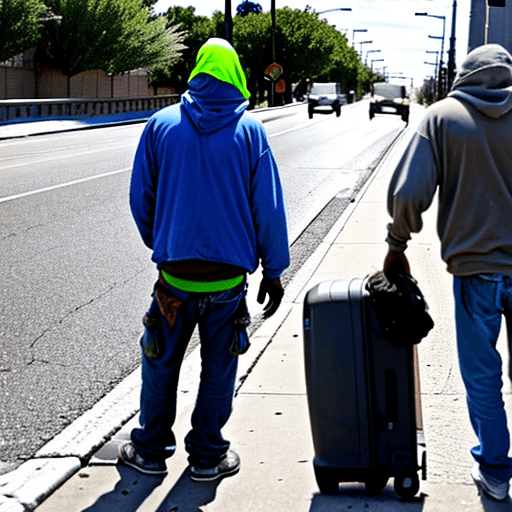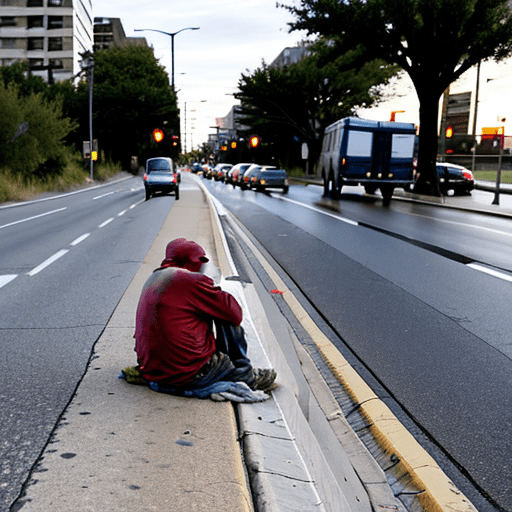Compassion Knows No Bounds: Giving to the Poor Despite Legal Restrictions


In a world where laws govern our actions, there are instances when our innate sense of compassion and empathy compels us to go beyond what is prescribed. One such situation arises when laws prohibit us from giving to the poor. Today, we explore the significance of extending a helping hand to those in need, even when legal barriers stand in our way.
The Call of Compassion:
Compassion, a universal human virtue, transcends legal boundaries. It is the deep empathy and concern we feel for others’ well-being, especially for those who are less fortunate. When we encounter laws that restrict our ability to help the poor, it is a critical moment to reflect on our moral obligations and the fundamental values that guide us.
Understanding Legal Restrictions:
Laws, while essential for maintaining order and harmony in society, may occasionally impose limitations on acts of charity and giving. These restrictions can be rooted in various factors, including concerns over public safety, economic regulations, or bureaucratic hurdles. While these laws serve specific purposes, they do not always align with our ethical principles.
Ethical Dilemma: Conscience vs. Law:
When faced with legal restrictions on helping the poor, we find ourselves at a crossroads—a clash between our conscience and the laws of the land. It is during these challenging times that we must carefully evaluate our moral compass and consider the consequences of our actions. Is it possible to find a balance between respecting the law and honoring our commitment to alleviate suffering?
The Power of Civil Disobedience:
Throughout history, acts of civil disobedience have played a crucial role in challenging unjust laws and effecting positive change. Inspired by principles of justice and compassion, individuals and communities have risen against legal barriers to help those in need. By peacefully challenging unjust laws and raising awareness of the plight of the impoverished, they have ignited transformative movements and advocated for social progress.
Relevant Scriptures:
- Proverbs 14:31 (NIV):
“Whoever oppresses the poor shows contempt for their Maker, but whoever is kind to the needy honors God.” - Matthew 25:40 (NIV):
“The King will reply, ‘Truly I tell you, whatever you did for one of the least of these brothers and sisters of mine, you did for me.'” - Acts 5:29 (NIV):
“Peter and the other apostles replied: ‘We must obey God rather than human beings!'”
Exploring Alternative Avenues:
While it is important to recognize the potential consequences of defying laws, there may be alternative avenues to fulfill our calling to help the poor within the confines of the legal system. This could involve engaging with local authorities, advocating for changes in legislation, or supporting organizations that work within the legal framework to address poverty and its underlying causes.
The Ripple Effect of Compassionate Action:
When we choose to act in defiance of restrictive laws to aid the poor, we not only provide immediate relief but also inspire others to question and challenge the status quo. By demonstrating the power of compassion and empathy, we foster a culture of care and empathy, creating a ripple effect that encourages others to join in the cause of alleviating suffering.
Conclusion:
In a world where laws may limit our ability to help the poor, it is essential to recognize that compassion knows no bounds. Drawing wisdom from Proverbs 14:31, which reminds us that by being kind to the needy, we honor God, and from the teachings of Matthew 25:40, where Jesus assures us that our actions towards the least among us reflect our service to Him, we find inspiration to persist in acts of compassion.
Moreover, the words of Acts 5:29 echo the apostles’ declaration that we must obey God rather than human beings, emphasizing the primacy of our spiritual obligations over temporal laws.
Our commitment to making a positive impact in the lives of the less fortunate should not be hindered by legal restrictions alone. While respecting the rule of law, let us explore creative ways to fulfill our moral obligations and advocate for change. Together, we can work towards a society that embraces compassion, equality, and justice for all, transcending the limitations imposed by laws.

